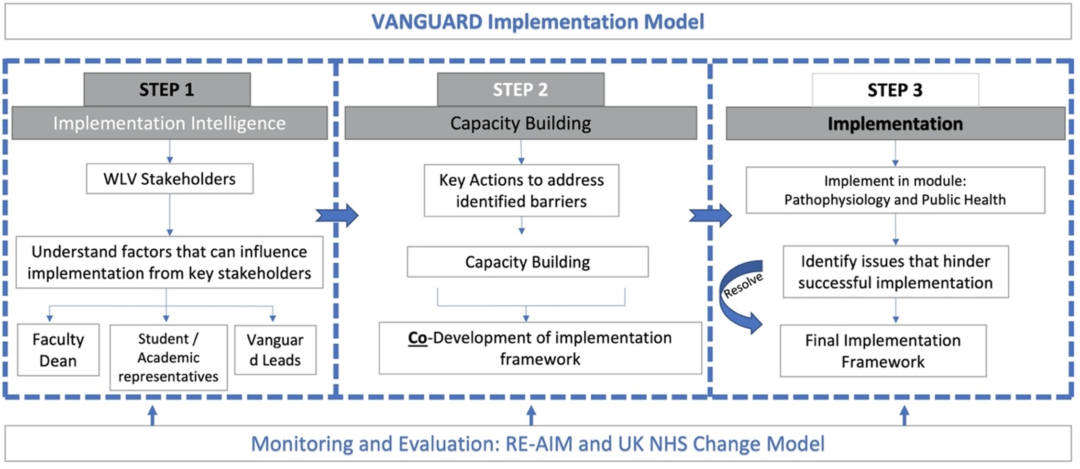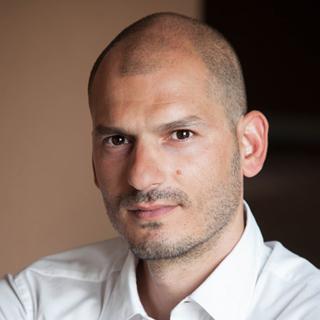Institution Description
The University of Wolverhampton (WLV) is a higher education institution with a tradition of providing opportunity and academic excellence dating back nearly 190 years and is today known as the ‘University of Opportunity’. WLV Strategic Plan 2016-21 has three pillars; Students First, Skills and Knowledge for Economic and Social Transformation, Significant Influence and Impact. Sub-aims incorporate; ‘creating outstanding learning opportunities informed by world-leading research and professional practice’ and ‘foster global knowledge exchange and collaboration’. These strongly relate to the objectives of the VANGUARD project and so the project is strategically aligned to the institution. The University has approximately 23,000 students and 2,500 staff and operates across three main campus sites. Subject areas are based around four faculties: Faculty of Social Sciences, Faculty of Arts, Faculty of Education, Health and Wellbeing and the Faculty of Science and Engineering. The Faculty of Education, Health and Wellbeing, is the largest faculty at the University of Wolverhampton with over 400 staff and 9,000 students and comprises the Institute of Education, the Institute of Health, the Institute of Community and Society and the Institute of Sport and Human Science.
The Institute of Sport and Human Sciences brings together the academic portfolio with student sports teams and world class facilities to provide a strategic lead for sport across the University. Students studying on sport courses are taught on the Walsall campus which is home to British Judo. Specialist teaching facilities at Walsall include physical activity and health, physiology, biomechanics and social science laboratories. Practical facilities include; fitness gyms, arenas, track, grass pitches, astroturf, games zones and a swimming pool. The WLV successfully attracts international students thanks to its excellent reputation and the quality of the courses offered. In 2018, WLV was awarded a Silver award as part of the Teaching Excellence Framework assessment. This award recognises that WLV delivers provision that is of high quality and consistently exceeds the rigorous national quality requirements for UK higher education, with most students achieving excellent outcomes.
The University is a centre of research excellence; with over a third of submissions to the latest Research Excellence Framework (REF) graded as world-leading or internationally excellent. WLV has three Research Institutes and 18 Research Centres; the Research Centre for Sport, Exercise and Performance (RCSEP) is focused on a number of academic disciplines; Biomechanics, Physiology, Psychology and Sociology applied to the antecedents, consequences and correlates of behaviour, health and wellbeing.
In recent years, WLV has seen a significant upturn in transnational education partnerships and numbers are continuing to grow. Currently, WLV is involved in 14 Erasmus+ projects. The University has a proven track record for successfully managing projects. It has a dedicated Project Support Office (PSO) and Project Finance Team (PFT) who work with grant holders to provide support for contract negotiations, partnership agreements, claim submissions, project and financial progress reporting, risk mitigation and audits. PSO also undertakes a Project Monitoring and Compliance function and ensures that document and data retention is compliant with University procedures and funders’ requirements.
Project Team
Under development.
Project Implementation
The implementation of physical activity in the Physiotherapy Course Curriculum (Healthcare Professionals) appears in the following Figure and was conducted using three distinct Steps. In Step 1, we identified all those factors that could affect implementation, using data from focus groups. The focus groups were conducted in all those stakeholders (University higher management, academics, students) that could affect the implementation process. In Step 2, we addressed these barriers via capacity building actions and interventions and we co-developed a final implementation map. In the last Step 3 we implemented the physical activity module in the Curriculum of the Physiotherapy Course, and we monitored and evaluated the outcomes of this whole process.

Follow this partner’s work in our blog.



